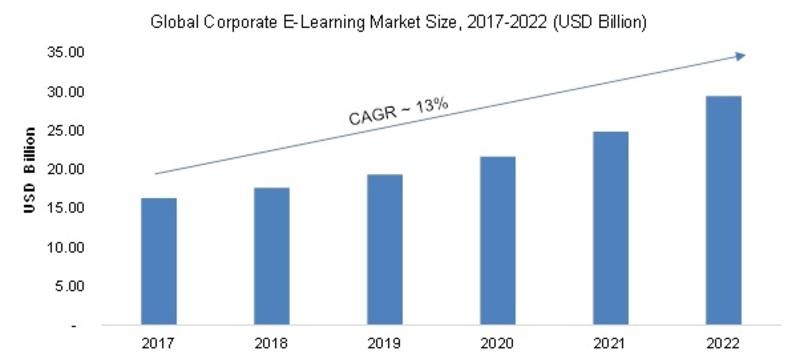Press release
Enterprise Metadata Management Market Grows With the Increasing Need to Manage and Leverage Metadata for Data Governance and Analytics
Enterprise Metadata Management Market Scope and Overview:
Enterprise Metadata Management (EMM) has emerged as a critical discipline in the realm of data management, enabling organizations to effectively manage and leverage their data assets. Metadata, which includes information about data characteristics, origins, usage, and relationships, plays a pivotal role in facilitating data governance, compliance, and decision-making processes. The Enterprise Metadata Management Market is witnessing significant growth as organizations across various industries recognize the importance of robust metadata management solutions in navigating the complexities of data management and unlocking the full potential of their data assets.
Get a Sample of Enterprise Metadata Management Market Report @ https://www.snsinsider.com/sample-request/2055
Competitive Analysis
The Enterprise Metadata Management market is characterized by intense competition, with several established players and emerging vendors vying for market share. Some of the major key players in the market include ASG Technologies, Cambridge Semantics, CentricMinds, Collibra, Data Advantage Group, IBM, Informatica, Oracle, SAP, Talend, and others. These companies offer a diverse range of EMM solutions and services designed to address the evolving needs of organizations in managing their metadata effectively.
Market Segmentation
The Enterprise Metadata Management market can be segmented based on various factors, including:
Deployment Type:
➤ On-Premise: On-premise deployment involves installing and operating EMM software within the organization's own IT infrastructure. This deployment model provides organizations with greater control over their metadata management processes and data security. It is preferred by organizations with strict regulatory compliance requirements or specific data governance policies.
➤ Cloud: Cloud-based deployment involves accessing EMM solutions and services hosted on cloud platforms. Cloud deployment offers scalability, flexibility, and cost-effectiveness, allowing organizations to scale their metadata management capabilities as needed without significant upfront investments in hardware or software. It is particularly suitable for organizations seeking agility and rapid deployment of EMM solutions.
Application:
➤ Governance and Compliance Management: EMM solutions are widely used for governance and compliance management, helping organizations establish and enforce data governance policies, ensure regulatory compliance, and mitigate risks associated with data management.
➤ Risk Management: EMM solutions enable organizations to assess and mitigate risks related to data quality, integrity, and security. By providing insights into data lineage, usage, and dependencies, EMM solutions empower organizations to identify and address potential risks proactively.
➤ Product and Process Management: EMM solutions play a crucial role in product and process management by providing visibility into data assets, facilitating collaboration among stakeholders, and supporting agile development processes. Organizations use EMM solutions to streamline product lifecycle management, optimize business processes, and drive innovation.
➤ Incident Management: EMM solutions assist organizations in incident management by enabling quick and efficient resolution of data-related issues, such as data breaches, data loss, or compliance violations. By providing real-time monitoring, alerting, and remediation capabilities, EMM solutions help organizations maintain data integrity and security.
Metadata Type:
➤ Business Metadata: Business metadata provides information about the business context, semantics, and usage of data assets. It includes attributes such as data definitions, business rules, data ownership, and data lineage, which are essential for understanding and interpreting data within the organizational context.
➤ Technical Metadata: Technical metadata encompasses information about the technical characteristics and structures of data assets. It includes attributes such as data formats, schemas, data models, and storage locations, which are crucial for managing data storage, integration, and interoperability across IT systems.
➤ Operational Metadata: Operational metadata captures information about the operational aspects of data assets, such as access logs, usage statistics, and data processing activities. It provides insights into how data is accessed, manipulated, and transformed within the organization's IT infrastructure, facilitating performance monitoring, optimization, and troubleshooting.
Component:
➤ Tools: EMM tools encompass software applications and platforms designed to capture, manage, and analyze metadata. These tools include data cataloging tools, metadata repositories, data lineage and impact analysis tools, data profiling tools, and metadata management platforms, which provide organizations with the necessary capabilities to govern and leverage their metadata effectively.
➤ Services: EMM services include consulting, implementation, training, and support services provided by vendors to assist organizations in deploying, configuring, and optimizing EMM solutions. These services may involve metadata discovery, data profiling, metadata modeling, metadata integration, and metadata governance, tailored to the specific needs and requirements of organizations.
End-Use:
➤ BFSI (Banking, Financial Services, and Insurance):The BFSI sector is a significant user of EMM solutions, leveraging metadata management capabilities to ensure regulatory compliance, risk management, and data governance. EMM solutions help financial institutions document, track, and govern metadata associated with customer data, transactions, and financial products, enabling them to maintain data quality, integrity, and transparency.
➤ Telecommunication & IT: The telecommunication and IT industries rely on EMM solutions to manage the vast amounts of metadata generated by network infrastructure, communication systems, and IT applications. EMM solutions support network management, service provisioning, and customer relationship management by providing visibility into network assets, service catalogs, and customer data.
➤ Retail and Ecommerce: Retailers and ecommerce companies use EMM solutions to manage metadata related to product catalogs, customer profiles, sales transactions, and supply chain operations. EMM solutions enable retailers to optimize inventory management, personalize marketing campaigns, and improve customer experience by leveraging metadata insights.
➤ Healthcare and Lifesciences: The healthcare and lifesciences sector leverages EMM solutions to manage metadata associated with patient records, clinical trials, medical devices, and drug development processes. EMM solutions support data interoperability, patient data management, and regulatory compliance, enabling healthcare organizations to improve patient care, research outcomes, and operational efficiency.
➤ Manufacturing: Manufacturers use EMM solutions to manage metadata related to product design, manufacturing processes, supply chain operations, and quality control. EMM solutions enable manufacturers to track product lifecycles, monitor production workflows, and optimize resource utilization by leveraging metadata insights.
➤ Government and Defense: Government agencies and defense organizations rely on EMM solutions to manage metadata associated with public records, national security information, and regulatory compliance requirements. EMM solutions support data classification, access control, and audit trail management, enabling government organizations to ensure data confidentiality, integrity, and availability.
➤ Energy and Utilities: The energy and utilities sector uses EMM solutions to manage metadata related to energy production, distribution, and consumption. EMM solutions support asset management, predictive maintenance, and regulatory reporting by providing insights into equipment status, operational data, and environmental factors affecting energy infrastructure.
➤ Media and Entertainment: Media and entertainment companies leverage EMM solutions to manage metadata associated with digital assets, content libraries, and distribution channels. EMM solutions support content management, rights management, and audience analytics, enabling media companies to monetize content effectively and deliver personalized experiences to viewers.
Regional Outlook
The demand for Enterprise Metadata Management solutions is expected to witness significant growth across various regions, including North America, Europe, Asia Pacific, Latin America, and the Middle East and Africa. North America is expected to dominate the Enterprise Metadata Management Market, owing to the presence of leading technology vendors, a mature IT infrastructure, and stringent regulatory requirements related to data governance and compliance. Europe is also expected to witness substantial growth in the Enterprise Metadata Management Market, driven by increasing adoption of cloud-based EMM solutions, digital transformation initiatives, and regulatory reforms related to data protection and privacy. The Asia Pacific region is anticipated to emerge as a lucrative market for EMM solutions, fueled by rapid economic growth, increasing investments in IT infrastructure, and rising demand for data management solutions in industries such as BFSI, healthcare, and manufacturing.
Get complete report details @ https://www.snsinsider.com/reports/enterprise-metadata-management-market-2055
Key Growth Drivers of the Market
Several factors are driving the growth of the Enterprise Metadata Management market, including:
➤ The exponential growth of data generated by organizations across various industries, coupled with the increasing complexity of data ecosystems, is driving the demand for robust metadata management solutions. EMM solutions enable organizations to catalog, govern, and analyze metadata effectively, ensuring data quality, consistency, and reliability.
➤ Stringent regulatory requirements related to data governance, privacy, and security are compelling organizations to implement metadata management solutions to ensure compliance with industry regulations and standards. EMM solutions help organizations maintain data lineage, enforce access controls, and demonstrate regulatory compliance, reducing the risk of fines, penalties, and reputational damage.
➤ The growing emphasis on data-driven decision-making processes is fueling the adoption of EMM solutions, as organizations seek to leverage metadata insights to gain a competitive edge, optimize business operations, and drive innovation. EMM solutions provide organizations with a holistic view of their data assets, enabling them to make informed decisions, identify emerging trends, and capitalize on new business opportunities.
➤ The ongoing digital transformation initiatives across industries are driving the need for comprehensive metadata management solutions to support data integration, migration, and interoperability requirements. EMM solutions play a crucial role in enabling organizations to align their data management strategies with their digital transformation goals, ensuring seamless data flow across heterogeneous IT environments.
➤ Organizations are recognizing the importance of robust data governance frameworks in ensuring data quality, integrity, and security throughout the data lifecycle. EMM solutions provide organizations with the tools and capabilities to establish data governance policies, enforce data stewardship roles, and monitor compliance with data management best practices.
Strengths of the Market
The Enterprise Metadata Management market exhibits several strengths, including:
➤ The market offers a wide range of EMM solutions and services catering to diverse industry verticals, deployment models, and use cases. Vendors provide comprehensive metadata management platforms, data cataloging tools, data governance frameworks, and metadata-driven applications to address the evolving needs of organizations in managing their data assets effectively.
➤ The Enterprise Metadata Management Market is characterized by a strong vendor ecosystem comprising established players, niche vendors, and emerging startups, offering innovative solutions and services tailored to specific customer requirements. Vendors collaborate with technology partners, system integrators, and industry alliances to deliver integrated metadata management solutions and address complex data management challenges.
➤ Vendors in the Enterprise Metadata Management Market are investing in research and development to enhance their product offerings, incorporate advanced analytics capabilities, and leverage emerging technologies such as artificial intelligence, machine learning, and natural language processing. Innovation is driving the evolution of EMM solutions, enabling organizations to derive greater value from their data assets and stay ahead of the competition.
➤ The Enterprise Metadata Management Market has a global footprint, with vendors catering to customers across various regions, industries, and organizational sizes. Vendors offer localized solutions, multilingual support, and regional expertise to address the unique requirements and regulatory environments of different geographies, expanding their market presence and customer base.
➤ Vendors in the Enterprise Metadata Management Market form strategic partnerships and alliances with technology providers, consulting firms, and industry associations to enhance their product capabilities, extend their market reach, and drive customer adoption. Collaborative initiatives enable vendors to offer integrated metadata management solutions, industry-specific offerings, and value-added services to customers, fostering innovation and growth.
Impact of the Recession
The Enterprise Metadata Management market is relatively resilient to economic downturns, as organizations continue to prioritize data management initiatives to drive operational efficiency, compliance, and innovation. During recessions, organizations may scrutinize their IT budgets and investment priorities, leading to a temporary slowdown in new project implementations or software upgrades. However, the long-term value proposition of EMM solutions, including cost savings, risk mitigation, and strategic insights, remains compelling for organizations seeking to navigate uncertain economic conditions and emerge stronger in the post-recession era. Moreover, the increasing regulatory pressures, data privacy concerns, and digital transformation imperatives are expected to sustain the demand for EMM solutions, driving market growth even during economic downturns.
Key Objectives of the Market Research Report:
The key objectives of the Enterprise Metadata Management market research report include:
➤ Provide a comprehensive analysis of the current state and future outlook of the Enterprise Metadata Management market, including market size, growth trends, drivers, challenges, and opportunities.
➤ Evaluate the competitive landscape of the Enterprise Metadata Management Market, including the market share, product offerings, business strategies, and key developments of leading vendors.
➤ Segment the Enterprise Metadata Management Market based on deployment type, application, metadata type, component, end-use industry, and geography, providing insights into the market dynamics and growth prospects of each segment.
➤ Analyze the regional dynamics of the Enterprise Metadata Management Market, including market trends, growth drivers, and regulatory factors impacting market growth across different geographies.
➤ Identify the key growth drivers of the Enterprise Metadata Management market, including regulatory compliance requirements, data-driven decision-making processes, digital transformation initiatives, and increasing focus on data governance.
➤ Highlight the strengths of the Enterprise Metadata Management Market, such as a comprehensive solutions portfolio, strong vendor ecosystem, focus on innovation, global market reach, and strategic partnerships and alliances.
In conclusion, the Enterprise Metadata Management market is poised for significant growth, driven by the increasing volume and complexity of data, regulatory compliance requirements, digital transformation initiatives, and the growing emphasis on data-driven decision-making processes. With a diverse range of solutions and services catering to various industry verticals, deployment models, and use cases, the Enterprise Metadata Management Market offers ample opportunities for organizations to harness the power of metadata and unlock the full potential of their data assets. As organizations continue to prioritize data management initiatives to drive operational efficiency, compliance, and innovation, the demand for robust metadata management solutions is expected to remain strong, fueling market growth and innovation in the years to come.
Buy Complete PDF of Enterprise Metadata Management Market Report @ https://www.snsinsider.com/checkout/2055
Contact Us:
Akash Anand - Head of Business Development & Strategy
info@snsinsider.com
Phone: +1-415-230-0044 (US) | +91-7798602273 (IND)
Website: https://www.snsinsider.com
Office No. 305-B, Arissa Avenue, Fountain Road, Kharadi, Pune, Maharashtra 411014
About Us:
SNS Insider is one of the leading market research and consulting agencies that dominates the market research industry globally. Our company's aim is to give clients the knowledge they require in order to function in changing circumstances. In order to give you current, accurate market data, consumer insights, and opinions so that you can make decisions with confidence, we employ a variety of techniques, including surveys, video talks, and focus groups around the world.
Our staff is dedicated to giving our clients reliable information, and with expertise working in the majority of industrial sectors, we're proud to be recognized as one of the world's top market research firms. We can quickly design and implement pertinent research programs, including surveys and focus groups, and we have the resources and competence to deal with clients in practically any company sector.
Enterprise Metadata Management (EMM) has emerged as a critical discipline in the realm of data management, enabling organizations to effectively manage and leverage their data assets. Metadata, which includes information about data characteristics, origins, usage, and relationships, plays a pivotal role in facilitating data governance, compliance, and decision-making processes. The Enterprise Metadata Management Market is witnessing significant growth as organizations across various industries recognize the importance of robust metadata management solutions in navigating the complexities of data management and unlocking the full potential of their data assets.
Get a Sample of Enterprise Metadata Management Market Report @ https://www.snsinsider.com/sample-request/2055
Competitive Analysis
The Enterprise Metadata Management market is characterized by intense competition, with several established players and emerging vendors vying for market share. Some of the major key players in the market include ASG Technologies, Cambridge Semantics, CentricMinds, Collibra, Data Advantage Group, IBM, Informatica, Oracle, SAP, Talend, and others. These companies offer a diverse range of EMM solutions and services designed to address the evolving needs of organizations in managing their metadata effectively.
Market Segmentation
The Enterprise Metadata Management market can be segmented based on various factors, including:
Deployment Type:
➤ On-Premise: On-premise deployment involves installing and operating EMM software within the organization's own IT infrastructure. This deployment model provides organizations with greater control over their metadata management processes and data security. It is preferred by organizations with strict regulatory compliance requirements or specific data governance policies.
➤ Cloud: Cloud-based deployment involves accessing EMM solutions and services hosted on cloud platforms. Cloud deployment offers scalability, flexibility, and cost-effectiveness, allowing organizations to scale their metadata management capabilities as needed without significant upfront investments in hardware or software. It is particularly suitable for organizations seeking agility and rapid deployment of EMM solutions.
Application:
➤ Governance and Compliance Management: EMM solutions are widely used for governance and compliance management, helping organizations establish and enforce data governance policies, ensure regulatory compliance, and mitigate risks associated with data management.
➤ Risk Management: EMM solutions enable organizations to assess and mitigate risks related to data quality, integrity, and security. By providing insights into data lineage, usage, and dependencies, EMM solutions empower organizations to identify and address potential risks proactively.
➤ Product and Process Management: EMM solutions play a crucial role in product and process management by providing visibility into data assets, facilitating collaboration among stakeholders, and supporting agile development processes. Organizations use EMM solutions to streamline product lifecycle management, optimize business processes, and drive innovation.
➤ Incident Management: EMM solutions assist organizations in incident management by enabling quick and efficient resolution of data-related issues, such as data breaches, data loss, or compliance violations. By providing real-time monitoring, alerting, and remediation capabilities, EMM solutions help organizations maintain data integrity and security.
Metadata Type:
➤ Business Metadata: Business metadata provides information about the business context, semantics, and usage of data assets. It includes attributes such as data definitions, business rules, data ownership, and data lineage, which are essential for understanding and interpreting data within the organizational context.
➤ Technical Metadata: Technical metadata encompasses information about the technical characteristics and structures of data assets. It includes attributes such as data formats, schemas, data models, and storage locations, which are crucial for managing data storage, integration, and interoperability across IT systems.
➤ Operational Metadata: Operational metadata captures information about the operational aspects of data assets, such as access logs, usage statistics, and data processing activities. It provides insights into how data is accessed, manipulated, and transformed within the organization's IT infrastructure, facilitating performance monitoring, optimization, and troubleshooting.
Component:
➤ Tools: EMM tools encompass software applications and platforms designed to capture, manage, and analyze metadata. These tools include data cataloging tools, metadata repositories, data lineage and impact analysis tools, data profiling tools, and metadata management platforms, which provide organizations with the necessary capabilities to govern and leverage their metadata effectively.
➤ Services: EMM services include consulting, implementation, training, and support services provided by vendors to assist organizations in deploying, configuring, and optimizing EMM solutions. These services may involve metadata discovery, data profiling, metadata modeling, metadata integration, and metadata governance, tailored to the specific needs and requirements of organizations.
End-Use:
➤ BFSI (Banking, Financial Services, and Insurance):The BFSI sector is a significant user of EMM solutions, leveraging metadata management capabilities to ensure regulatory compliance, risk management, and data governance. EMM solutions help financial institutions document, track, and govern metadata associated with customer data, transactions, and financial products, enabling them to maintain data quality, integrity, and transparency.
➤ Telecommunication & IT: The telecommunication and IT industries rely on EMM solutions to manage the vast amounts of metadata generated by network infrastructure, communication systems, and IT applications. EMM solutions support network management, service provisioning, and customer relationship management by providing visibility into network assets, service catalogs, and customer data.
➤ Retail and Ecommerce: Retailers and ecommerce companies use EMM solutions to manage metadata related to product catalogs, customer profiles, sales transactions, and supply chain operations. EMM solutions enable retailers to optimize inventory management, personalize marketing campaigns, and improve customer experience by leveraging metadata insights.
➤ Healthcare and Lifesciences: The healthcare and lifesciences sector leverages EMM solutions to manage metadata associated with patient records, clinical trials, medical devices, and drug development processes. EMM solutions support data interoperability, patient data management, and regulatory compliance, enabling healthcare organizations to improve patient care, research outcomes, and operational efficiency.
➤ Manufacturing: Manufacturers use EMM solutions to manage metadata related to product design, manufacturing processes, supply chain operations, and quality control. EMM solutions enable manufacturers to track product lifecycles, monitor production workflows, and optimize resource utilization by leveraging metadata insights.
➤ Government and Defense: Government agencies and defense organizations rely on EMM solutions to manage metadata associated with public records, national security information, and regulatory compliance requirements. EMM solutions support data classification, access control, and audit trail management, enabling government organizations to ensure data confidentiality, integrity, and availability.
➤ Energy and Utilities: The energy and utilities sector uses EMM solutions to manage metadata related to energy production, distribution, and consumption. EMM solutions support asset management, predictive maintenance, and regulatory reporting by providing insights into equipment status, operational data, and environmental factors affecting energy infrastructure.
➤ Media and Entertainment: Media and entertainment companies leverage EMM solutions to manage metadata associated with digital assets, content libraries, and distribution channels. EMM solutions support content management, rights management, and audience analytics, enabling media companies to monetize content effectively and deliver personalized experiences to viewers.
Regional Outlook
The demand for Enterprise Metadata Management solutions is expected to witness significant growth across various regions, including North America, Europe, Asia Pacific, Latin America, and the Middle East and Africa. North America is expected to dominate the Enterprise Metadata Management Market, owing to the presence of leading technology vendors, a mature IT infrastructure, and stringent regulatory requirements related to data governance and compliance. Europe is also expected to witness substantial growth in the Enterprise Metadata Management Market, driven by increasing adoption of cloud-based EMM solutions, digital transformation initiatives, and regulatory reforms related to data protection and privacy. The Asia Pacific region is anticipated to emerge as a lucrative market for EMM solutions, fueled by rapid economic growth, increasing investments in IT infrastructure, and rising demand for data management solutions in industries such as BFSI, healthcare, and manufacturing.
Get complete report details @ https://www.snsinsider.com/reports/enterprise-metadata-management-market-2055
Key Growth Drivers of the Market
Several factors are driving the growth of the Enterprise Metadata Management market, including:
➤ The exponential growth of data generated by organizations across various industries, coupled with the increasing complexity of data ecosystems, is driving the demand for robust metadata management solutions. EMM solutions enable organizations to catalog, govern, and analyze metadata effectively, ensuring data quality, consistency, and reliability.
➤ Stringent regulatory requirements related to data governance, privacy, and security are compelling organizations to implement metadata management solutions to ensure compliance with industry regulations and standards. EMM solutions help organizations maintain data lineage, enforce access controls, and demonstrate regulatory compliance, reducing the risk of fines, penalties, and reputational damage.
➤ The growing emphasis on data-driven decision-making processes is fueling the adoption of EMM solutions, as organizations seek to leverage metadata insights to gain a competitive edge, optimize business operations, and drive innovation. EMM solutions provide organizations with a holistic view of their data assets, enabling them to make informed decisions, identify emerging trends, and capitalize on new business opportunities.
➤ The ongoing digital transformation initiatives across industries are driving the need for comprehensive metadata management solutions to support data integration, migration, and interoperability requirements. EMM solutions play a crucial role in enabling organizations to align their data management strategies with their digital transformation goals, ensuring seamless data flow across heterogeneous IT environments.
➤ Organizations are recognizing the importance of robust data governance frameworks in ensuring data quality, integrity, and security throughout the data lifecycle. EMM solutions provide organizations with the tools and capabilities to establish data governance policies, enforce data stewardship roles, and monitor compliance with data management best practices.
Strengths of the Market
The Enterprise Metadata Management market exhibits several strengths, including:
➤ The market offers a wide range of EMM solutions and services catering to diverse industry verticals, deployment models, and use cases. Vendors provide comprehensive metadata management platforms, data cataloging tools, data governance frameworks, and metadata-driven applications to address the evolving needs of organizations in managing their data assets effectively.
➤ The Enterprise Metadata Management Market is characterized by a strong vendor ecosystem comprising established players, niche vendors, and emerging startups, offering innovative solutions and services tailored to specific customer requirements. Vendors collaborate with technology partners, system integrators, and industry alliances to deliver integrated metadata management solutions and address complex data management challenges.
➤ Vendors in the Enterprise Metadata Management Market are investing in research and development to enhance their product offerings, incorporate advanced analytics capabilities, and leverage emerging technologies such as artificial intelligence, machine learning, and natural language processing. Innovation is driving the evolution of EMM solutions, enabling organizations to derive greater value from their data assets and stay ahead of the competition.
➤ The Enterprise Metadata Management Market has a global footprint, with vendors catering to customers across various regions, industries, and organizational sizes. Vendors offer localized solutions, multilingual support, and regional expertise to address the unique requirements and regulatory environments of different geographies, expanding their market presence and customer base.
➤ Vendors in the Enterprise Metadata Management Market form strategic partnerships and alliances with technology providers, consulting firms, and industry associations to enhance their product capabilities, extend their market reach, and drive customer adoption. Collaborative initiatives enable vendors to offer integrated metadata management solutions, industry-specific offerings, and value-added services to customers, fostering innovation and growth.
Impact of the Recession
The Enterprise Metadata Management market is relatively resilient to economic downturns, as organizations continue to prioritize data management initiatives to drive operational efficiency, compliance, and innovation. During recessions, organizations may scrutinize their IT budgets and investment priorities, leading to a temporary slowdown in new project implementations or software upgrades. However, the long-term value proposition of EMM solutions, including cost savings, risk mitigation, and strategic insights, remains compelling for organizations seeking to navigate uncertain economic conditions and emerge stronger in the post-recession era. Moreover, the increasing regulatory pressures, data privacy concerns, and digital transformation imperatives are expected to sustain the demand for EMM solutions, driving market growth even during economic downturns.
Key Objectives of the Market Research Report:
The key objectives of the Enterprise Metadata Management market research report include:
➤ Provide a comprehensive analysis of the current state and future outlook of the Enterprise Metadata Management market, including market size, growth trends, drivers, challenges, and opportunities.
➤ Evaluate the competitive landscape of the Enterprise Metadata Management Market, including the market share, product offerings, business strategies, and key developments of leading vendors.
➤ Segment the Enterprise Metadata Management Market based on deployment type, application, metadata type, component, end-use industry, and geography, providing insights into the market dynamics and growth prospects of each segment.
➤ Analyze the regional dynamics of the Enterprise Metadata Management Market, including market trends, growth drivers, and regulatory factors impacting market growth across different geographies.
➤ Identify the key growth drivers of the Enterprise Metadata Management market, including regulatory compliance requirements, data-driven decision-making processes, digital transformation initiatives, and increasing focus on data governance.
➤ Highlight the strengths of the Enterprise Metadata Management Market, such as a comprehensive solutions portfolio, strong vendor ecosystem, focus on innovation, global market reach, and strategic partnerships and alliances.
In conclusion, the Enterprise Metadata Management market is poised for significant growth, driven by the increasing volume and complexity of data, regulatory compliance requirements, digital transformation initiatives, and the growing emphasis on data-driven decision-making processes. With a diverse range of solutions and services catering to various industry verticals, deployment models, and use cases, the Enterprise Metadata Management Market offers ample opportunities for organizations to harness the power of metadata and unlock the full potential of their data assets. As organizations continue to prioritize data management initiatives to drive operational efficiency, compliance, and innovation, the demand for robust metadata management solutions is expected to remain strong, fueling market growth and innovation in the years to come.
Buy Complete PDF of Enterprise Metadata Management Market Report @ https://www.snsinsider.com/checkout/2055
Contact Us:
Akash Anand - Head of Business Development & Strategy
info@snsinsider.com
Phone: +1-415-230-0044 (US) | +91-7798602273 (IND)
Website: https://www.snsinsider.com
Office No. 305-B, Arissa Avenue, Fountain Road, Kharadi, Pune, Maharashtra 411014
About Us:
SNS Insider is one of the leading market research and consulting agencies that dominates the market research industry globally. Our company's aim is to give clients the knowledge they require in order to function in changing circumstances. In order to give you current, accurate market data, consumer insights, and opinions so that you can make decisions with confidence, we employ a variety of techniques, including surveys, video talks, and focus groups around the world.
Our staff is dedicated to giving our clients reliable information, and with expertise working in the majority of industrial sectors, we're proud to be recognized as one of the world's top market research firms. We can quickly design and implement pertinent research programs, including surveys and focus groups, and we have the resources and competence to deal with clients in practically any company sector.
Permanent link to this press release:
Copy
Please set a link in the press area of your homepage
to this press release on woodPRI. woodPRI disclaims liability for any content contained in
this release.
Recommend

/newsMicroencapsulation Market Deep Analysis on Key Players - Dow Corning, Encapsys, Syngenta Crop Protection, Evonik Industries, 3M and Bayer
Market Study Report Adds Global Microencapsulation Market Size, Status and Forecast 2024 added to its database. The report provides key statistics on the current state of the industry and other analytical data to understand the market.
Extensive research is required for choosing the appropriate cor...

/newsGermany Airbag Market Size 2023: Global Share, Industry And Report Analysis By 2030 | Hyundai Mobis Co., Ltd. Key Safety Systems, Inc. Robert Bosch GmbH
Germany airbag market is expected to grow at a CAGR of around 6% during the forecast period. Germany Airbag Market research report refers to gathering and analyzing significant market data serve as best medium for various industry players to launch novel product or service. It is vital for key firms...

/newsSecurities Brokerages And Stock Exchanges Market Outlook 2021: Big Things are Happening
A new intelligence report released by HTF MI with title "Global Securities Brokerages And Stock Exchanges Market Survey & Outlook" is designed covering micro level of analysis by Insurers and key business segments, offerings and sales channels. The Global Securities Brokerages And Stock Exchange...

/newsRenewable Chemicals Market Emerging Trends and Competitive Landscape Forecast to 2028
The renewable chemicals market was valued at US$ 80,566.30 million in 2021 and is projected to reach US$ 1,76,750.76 million by 2028 it is expected to grow at a CAGR of 11.9% from 2021 to 2028. The research report focuses on the current market trends, opportunities, future potential of the market, a...

/newsHow Coronavirus is Impacting Cold Brew Coffee, Global Market Volume Analysis, Size, Share and Key Trends 2020-2026
"Market Latest Research Report 2020:
Los Angles United States, February 2020: The Cold Brew Coffee market has been garnering remarkable momentum in the recent years. The steadily escalating demand due to improving purchasing power is projected to bode well for the global market. QY Research's lates...

/newsCorporate E-Learning Market - Global Industry Size, Share, Key Players Analysis that are Infor, SkillSoft Corporation, Adrenna, CERTPOINT Systems and others with Regional Forecast to 2022
Overview:
E-Learning is used to enhance the learning procedures for newer job requirements and to make employees sound about the internal and external changes in the market and respective organizations. This method has created considerable differences in the ways of training and developing employee...
